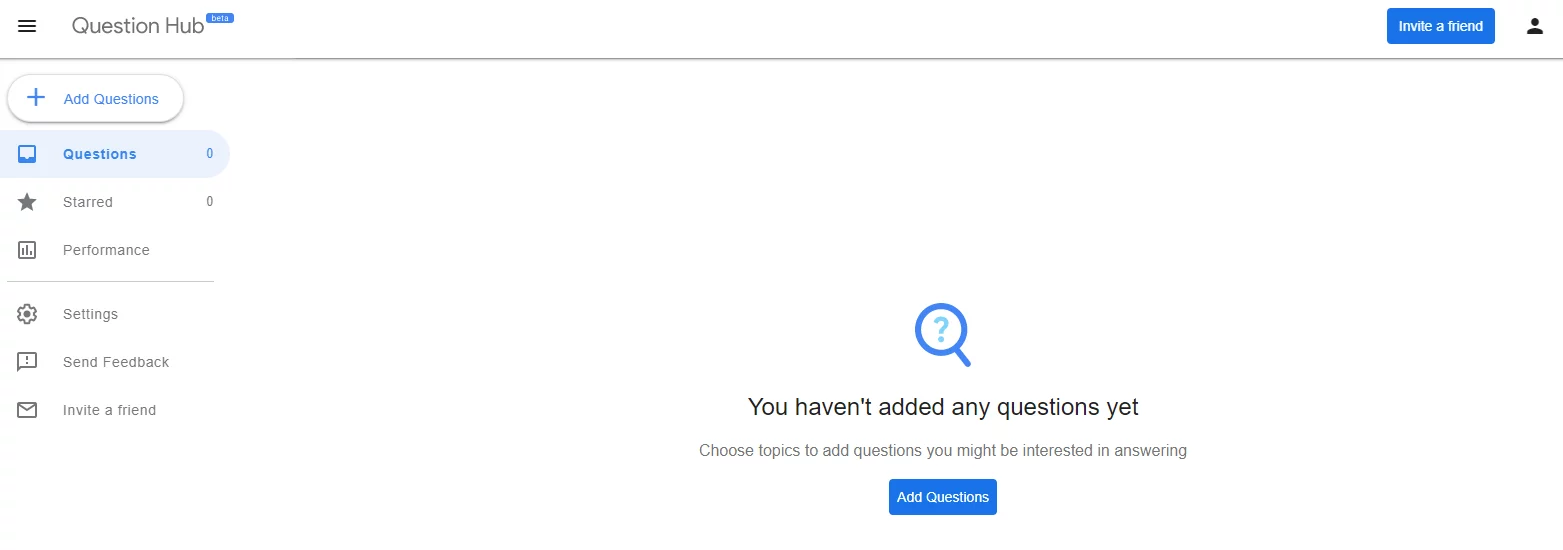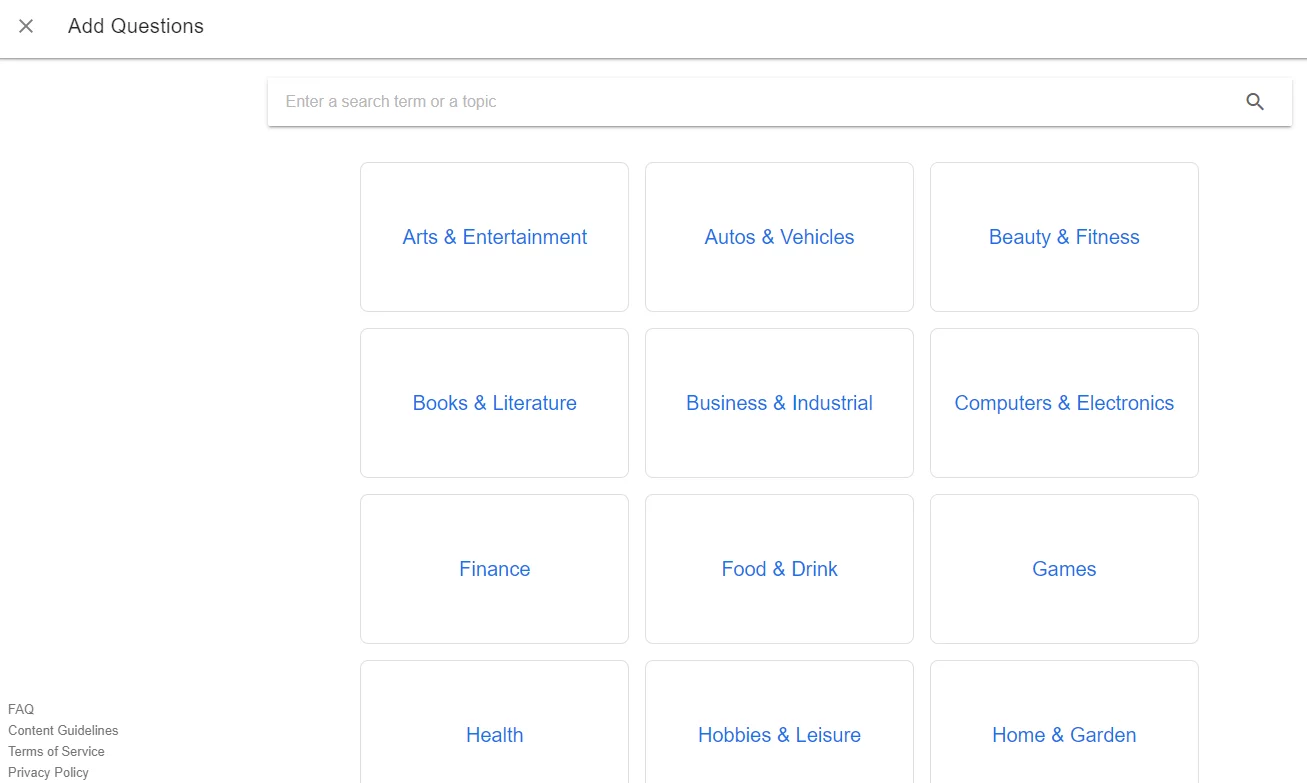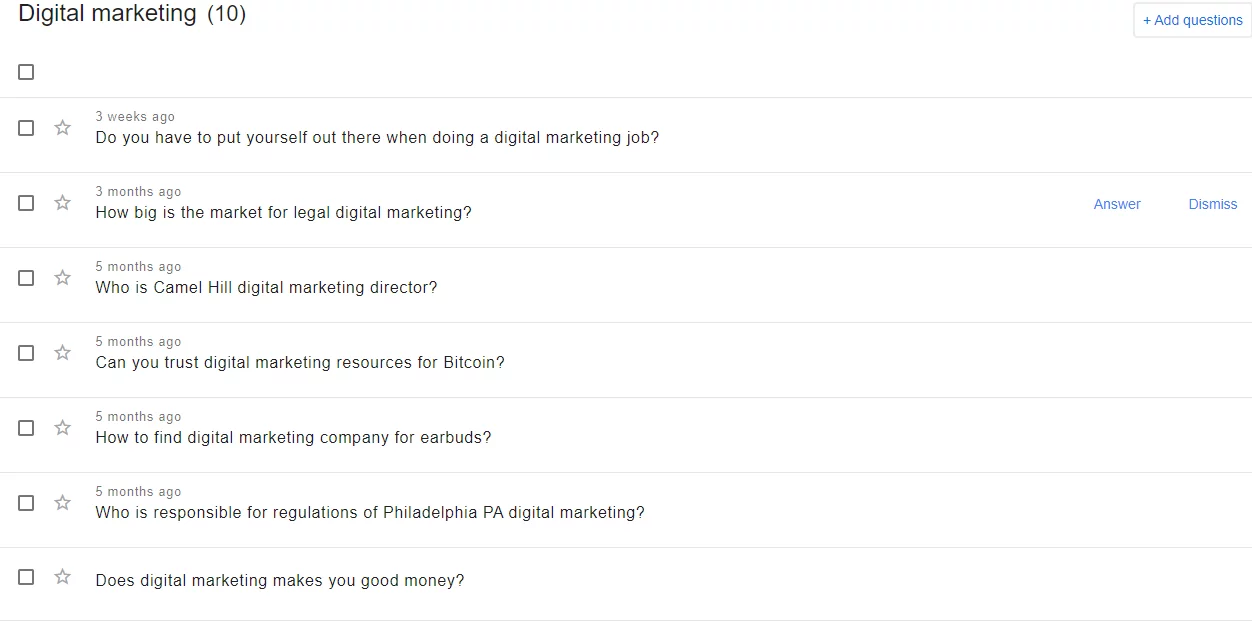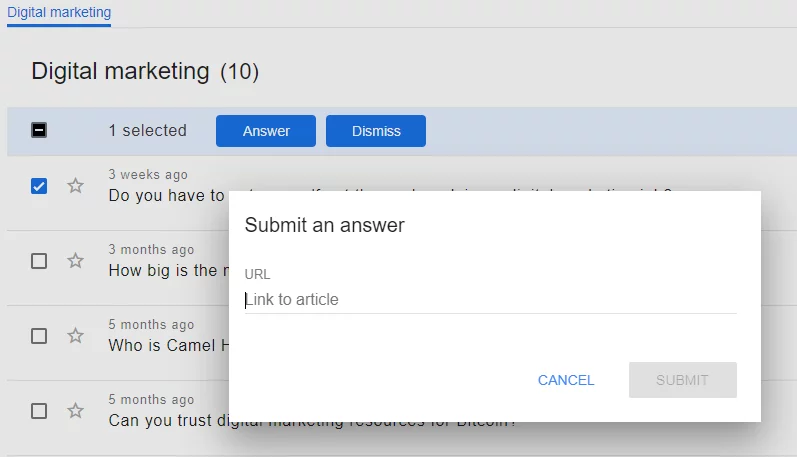Whenever new products and services come out to satisfy some core need of an industry, it always seems strange to me that we have come this far without those things. It’s hard to imagine a world without lawnmowers or smartphones now that we’ve basically mastered these inventions.
I’ve been thinking the same recently about Google’s latest service rollout: Question Hub.
This tool was released for U.S.-based publishers in the second week of January. Question Hub is meant for content creators across the internet and promises to have far-reaching effects on the SEO world. Any program that allows website owners to generate more useful content for the world’s Google users has to be a boon to brands and businesses everywhere.
This tool comes as no surprise either. Questions dominate the organic search results nowadays.
So, what is Google Question Hub, and how can you take advantage of it for your content marketing? Well, give me a minute, and I’ll tell you.
What Is Google Question Hub?
Google Question Hub is a repository of unanswered questions that users have asked on Google.
The concept is simple. When you Google questions for which no good or useful content exists, the search engine places the question in Question Hub. Then, content creators can sift through the tool to find questions relating to their industry and answer them on their sites.
Any SEO with even a little experience in the industry can see where this is going. That new content creation will generate better user experiences on Google since searchers will then be able to find all kinds of new answers to their questions. Simultaneously, those searchers will find the websites of the content creators, which means those brands will earn more exposure to and traffic from relevant audiences.
Google Question Hub essentially simplifies the filling of content gaps. Any content creator out there–whether you write blog posts, create infographics, or record podcasts and videos–is going to find Google Question Hub invaluable for your on-site SEO as things move forward with the new tool.
Where’s Question Hub Been All Our Lives?
Just like realizing that someone you know is the one true love you’ve always been seeking (I listen to a lot of singer-songwriters, okay?), it does seem odd that something as helpful as Google Question Hub is just coming out in 2021.
Well, I guess it would be odd if it weren’t for the fact that Question Hub has actually been out in test form since 2018. Google began testing the tool that year and into 2019 in India, Indonesia, and Nigeria.
The search engine had determined that these were regions where it was failing to provide adequate answers to user questions (as in, useful content created in Hindi and English in India, in Bahasa Indonesia in Indonesia, and in English in Nigeria). Google ran some trial-and-error campaigns for Question Hub during that time as it worked to optimize its new program.
Meanwhile, in the first quarter of 2020, Google rolled out a new feature for unanswered questions in the United States: a box at the top of the first SERP that read, “It looks like there aren’t any great matches for your search.”
If you get this, you’ll see the box suggests some ways to rephrase a search to come up with better results, but users can also look at the actual results that were generated for their query (usually, these are of low quality).
What is interesting to note is that unbeknownst to the general American public at the time, Google actually started some limited testing of Question Hub in the United States during the first quarter of 2020. This was intended as a way to fill content gaps on the then-unfolding COVID-19 pandemic.
Entities such as government organizations and medical facilities were able to submit COVID-related queries to Question Hub manually so Google could begin to accumulate the questions that still surrounded the deadly virus at that point. The tool’s question-submission box was not available to general U.S. publishers.
Ultimately, Google Question Hub arrived in its current form for U.S. publishers only in the second week of 2021, which brings us back to the present.
How Does Google Question Hub Work?
So, now that you know the history of Question Hub, what it is, and its implications for content marketing in 2021 and beyond, I’ll bet you’re wondering how it works in detail.
Well, I happen to run a music blog and am just the type of content creator that Google wants using Question Hub. Let me take you through the basic steps of using the tool.
- You Must Own a Site Verified in Search Console
The first thing to know before doing anything else is that you must own a site that has been verified in Google Search Console to use Question Hub. If you go to sign up to use the tool, you will be asked to sign into a Google account. That account must be one linked to a Search Console site, or you will be barred from entering.
- Add Questions
Once you successfully sign into Question Hub (which, by the way, you can see is still in beta), you’ll arrive at the screen below:

You can see pretty clearly that the tool wants you to add questions to your account. When you click the button, you’ll come to this screen:

You can browse the listed categories to get some ideas or just look for whatever you have in mind in the search box.
Let’s say I want to know some unanswered questions on digital marketing. I searched that query and came to this screen, where I added a set of 10 digital marketing questions to my account:

When I returned to the main screen, my questions appeared there:

You can see from the above queries that were returned to me that the questions range from general to specific. Not all questions are going to be created equal for your particular niche.
The question of “How big is the market for legal digital marketing?” seems like it would call for a broad, sweeping content piece to answer it. Conversely, the question “Who is responsible for regulations of Philadelphia PA digital marketing?” could be a shorter, more focused answer (or not, depending on what else is out there on the subject).
But you should be starting to get the idea here. These results are vital to me if I want my digital marketing website to attract users who want to know these things.
- Answer the Questions
The final step here is obviously to answer the questions. The way this works is, you will have to research and create your content for the question on your own and actually publish it on your website.
When you hover over a question in the tool, you can “answer” or “dismiss” the question. When you hit “answer,” you’ll get the following box, which wants you to input the URL leading to the content you’ve already created:

I haven’t seen anything specifically mentioning this, but I think it’s safe to assume that your content won’t receive preferential treatment in Google’s SERPs just because you submitted something directly to Question Hub. All the best practices of SEO content marketing still apply, so make sure your content answers the question to the best of your abilities.
Google Question Hub Will Only Enhance Content Marketing
The possibilities of Question Hub seem endless at this point. For any content creators out there who are willing to put in the time, Google’s latest service can help you to fill your content gaps, attract all-new traffic to your sites, and deliver to searchers exactly what they came to find.
That’s what SEO is all about, and it’s why we in digital marketing do what we do every day. Like I mentioned before, questions are dominating the organic search results pages. Take advantage of this tool, answer some unanswered questions, and gain some prime real estate on the first page of Google.
Google Question Hub: check it out!



